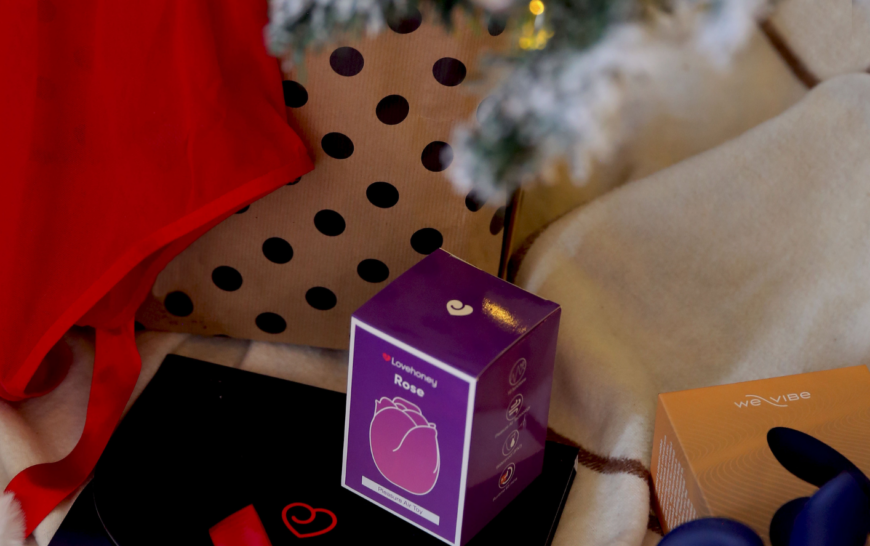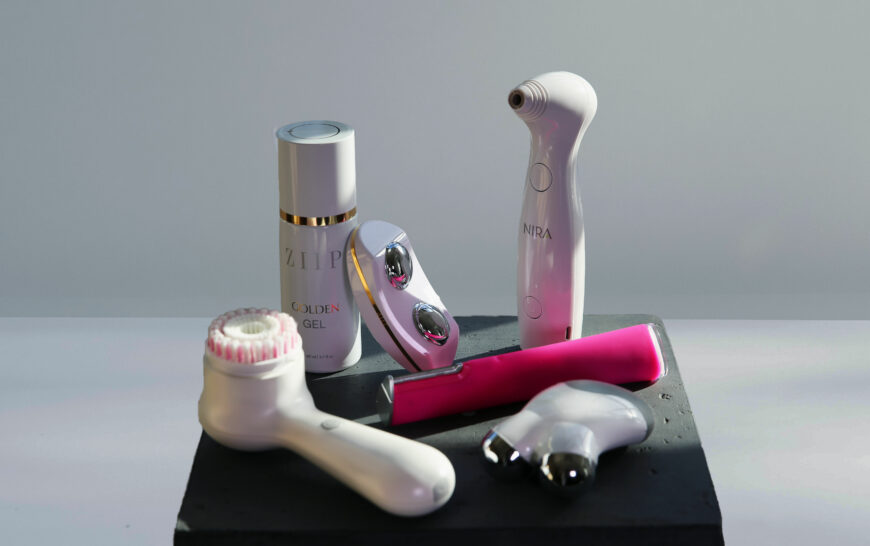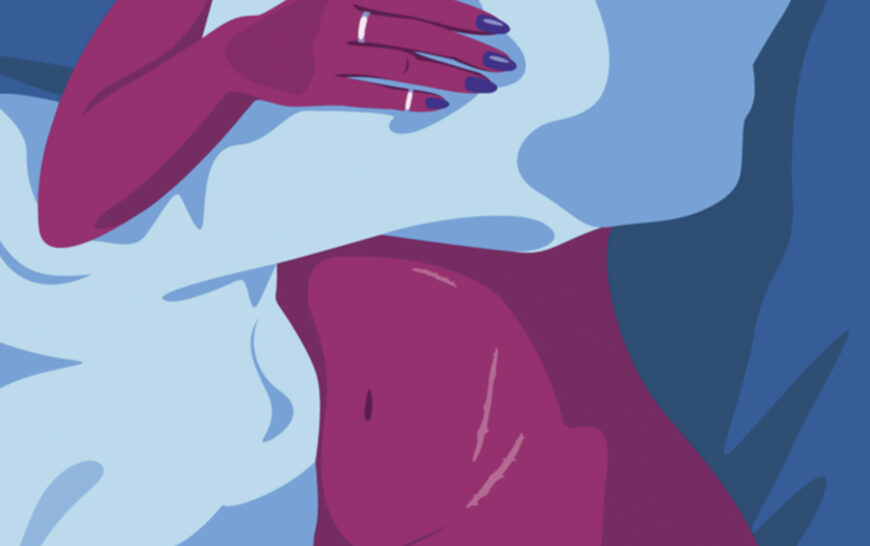
Suffering with Heavy, Painful Periods? A Herbalist Shares Her Hacks!
From reconnecting with your cycle to understanding the impact of chronic stress on your hormones, here Natasha gives her expert insight, practical tips and herbal hacks for managing heavy and painful bleeds, with a little help from mother nature.
A stress-free period doesn’t exi…
Tricky periods, meet your match! As a trained medical herbalist specialising in women’s health, Natasha Richardson has helped hundreds of people suffering with PMS, painful periods, persistent fatigue and chronic stress to reclaim their menstrual wellbeing.
After suffering with prolonged period pain which seriously interfered with her life and being ignored by the medical profession, she discovered the amazing pain-alleviating properties of the botanical pharmacy right on her doorstep.
Natasha has since gone on to create Forage Botanicals, a business aimed specifically at helping people with periods alleviate and manage the stress and symptoms of period pain and other menstrual cycle issues through health coaching, education and natural remedies.
Her powerful guide Your Period Handbook draws on her personal experiences of crippling period pain and her clinical expertise to educate you on everything you never knew about your period, whilst providing a comprehensive overview of relevant herbs and their uses.
From reconnecting with your cycle to understanding the impact of chronic stress on your hormones, here Natasha gives her expert insight, practical tips and herbal hacks for managing heavy and painful bleeds, with a little help from mother nature.
Q: Hi Natasha! First up we’d love to hear more about who you are, what you do as a trained medical herbalist and why you started Forage Botanicals?
Hi! I’m an intersectional feminist, mother and to-do list junkie. I trained in herbal medicine at Lincoln University, qualifying in 2010 after 3 years of training and 500 hours of contact time with patients. Recently, I graduated from Oxford after studying for a masters in Design History where I researched medical objects that have changed the modern woman’s body, such as the speculum and the contraceptive pill. I struggled with very painful periods when I was first at university, through my studies with herbal medicine I was able to get myself pain-free within 6 months, results I then later repeated with my own patients. I started to see clear patterns among my patients, similarities in triggers and herbs that were beneficial. Over the years of seeing results with particular herbs, I decided to bring the blends I was creating to the market, which is how Forage Botanicals was born. We now offer products alongside one-to-one treatments with professional herbalists.

Q: What are your top tips and natural home remedies for period pain?
Hot water bottles are my go-to, the most simple and most effective. We have a product in the range called Moon Time Belly Balm, which we created for period pain, using cooling peppermint and majaroam which helps with cramps and they are great to use together. If the pain increases, an orgasm can bring instant relief and the natural endorphins work wonders. Also, taking anti-inflammatory supplements like evening primrose oil or fish oils can help too, we recommend taking them daily for at least a month to make a difference.
Q: Can holistic remedies help manage conditions such as Endometriosis, Fibroids, PCOS and Adenomyosis?
Yes, I treated all of these conditions in my practice, working to manage triggers and symptoms. Typically Fibroids and PCOS take 6 months to treat and once you know how to manage the condition you will see continued results. Whereas, with our Endo and Adeno patients treatment is often required longer-term as the condition can be reactive and flare up.
Q: How can we reconnect with and reclaim our menstrual cycles?
The number one way is to simply track your cycle. Not only track your bleed but also how you’re feeling, along with the day of your cycle so you can look for patterns month on month. Studies have shown that simply tracking symptoms can improve them because it helps people see any patterns and understand they are transient.
Q: How can we have a ‘better’ period?
The best way to have a better period is to work hard at relaxing. Schedule time to do nothing. Literally, block out time in your diary time where you’re going to say no to social engagements. It’s a miracle worker. Our bodies need physical, emotional and sensory rest. If this is challenging and it is for so many of us with work and family commitments, help your body out with herbs that support your unnatural stress response, adaptogens like Ashwagandha and herbs such as hawthorn and oat tops which we blend in our Rested Resilience chai latte help to regulate the nervous system and promote rest.

Q: What causes heavy periods (medically known as menorrhagia)?
There are many causes but the most common is DUB. DUB means ‘dysfunctional uterine bleeding’ and sadly nobody knows what causes it. If you’re told your heavy periods are because of DUB it can feel like a big question mark. There are also perfectly natural reasons for heavy periods, like perimenopause which is important to talk about. However, just because heavy periods can be caused by something natural doesn’t mean you shouldn’t do anything about it. Iron supplements can really help, this is because when we have low iron levels we can be prone to bleed more, which then also reduces iron levels again, it’s a vicious cycle. Another reason for heavy flow is fibroids, these are relatively common and can be diagnosed through a scan. Fibroids tend to be more common later in life and will most likely dissipate when periods stop.
Q: What would your advice be for anyone suffering with particularly heavy or painful bleeds? Can a natural remedy help?
Anyone with particularly heavy periods should try an iron supplement like Floradix. I also created our Aunt Flo drinking chocolate to boost your iron levels during and after your period, a chocolate that’s good for you, what more needs to be said? Painful periods also need long-term stress relief, an anti-inflammatory diet and on-the-day pain relief.
Q: Our cycles can often provide the best insight for what’s going on with our overall health and wellbeing. What are some period ‘red flags’ to be aware of when tracking your cycle?
Any sudden changes are a big red flag and we recommend booking in to see your GP.
Q: In your book The Period Handbook, you explore the effects of stress on our hormonal balance and wellbeing. How much does stress impact our periods and how can we ensure we’re living in a way that works with our cycle, rather than against it? Have we really become out of touch with the concept of relaxation?
In ten years of working with patients, stress is the number trigger of painful periods that we see time and time again. High and prolonged levels of cortisol in the body can impact everything from delayed periods to exacerbating PMS symptoms and worsening period pain. Our bodies are struggling to keep up with our busy lifestyles in ways we’re only just beginning to realise. Fortunately, herbs can help better equip our bodies to adapt to stress and reset, but ultimately we also need to redefine rest. Our bodies not only need physical rest but also sensory rest away from screens and devices to recalibrate. Good quality sleep is also incredibly important because it’s where we reset the whole body and heal from the day. Rest can be one of the hardest things to do for ourselves with daily demands and productivity guilt but we really need it.

Q: There’s a long history of dismissing women’s pain in the medical industry, it’s routinely underdiagnosed and undertreated and we know you’ve sadly had first-hand experience of that. What can those going through something similar do to advocate for themselves?
I sometimes joke that the best thing to do is bring a white middle-class male with you to do all the talking but it absolutely should not be the case. In order to advocate for yourself, you first need to have boundaries and knowledge about what you think is and isn’t acceptable. To adhere to those boundaries you’ve got to feel strong in the moment and sometimes, when you’re in pain, haven’t slept etc. you can’t do this for yourself, so bring a friend to an appointment for support. Also taking notes, logging symptoms and cycle tracking can arm you with the information that your doctor may ask you for.
Q: We realise it must be like picking a favourite child but… do you have a soft spot for a particular herb / flower?
Lady’s Mantle has to be my favourite, it has such a rich history in women’s health and first opened my eyes to the power of hormone-balancing herbs.
Q: What’s your ultimate period self-care routine?
Mine, without a doubt, is resting and having time to myself to reflect on life. I like to do that in the bath, or on a walk in nature.
Q: What does menstrual wellbeing mean to you?
I’ve made my mission of raising awareness around menstrual well-being shape my entire life so I guess it must mean a lot. Personally, I’ve found that menstrual well-being forms the very centre of my healthy lifestyle and that helps me keep on track with the habits I put in place.




